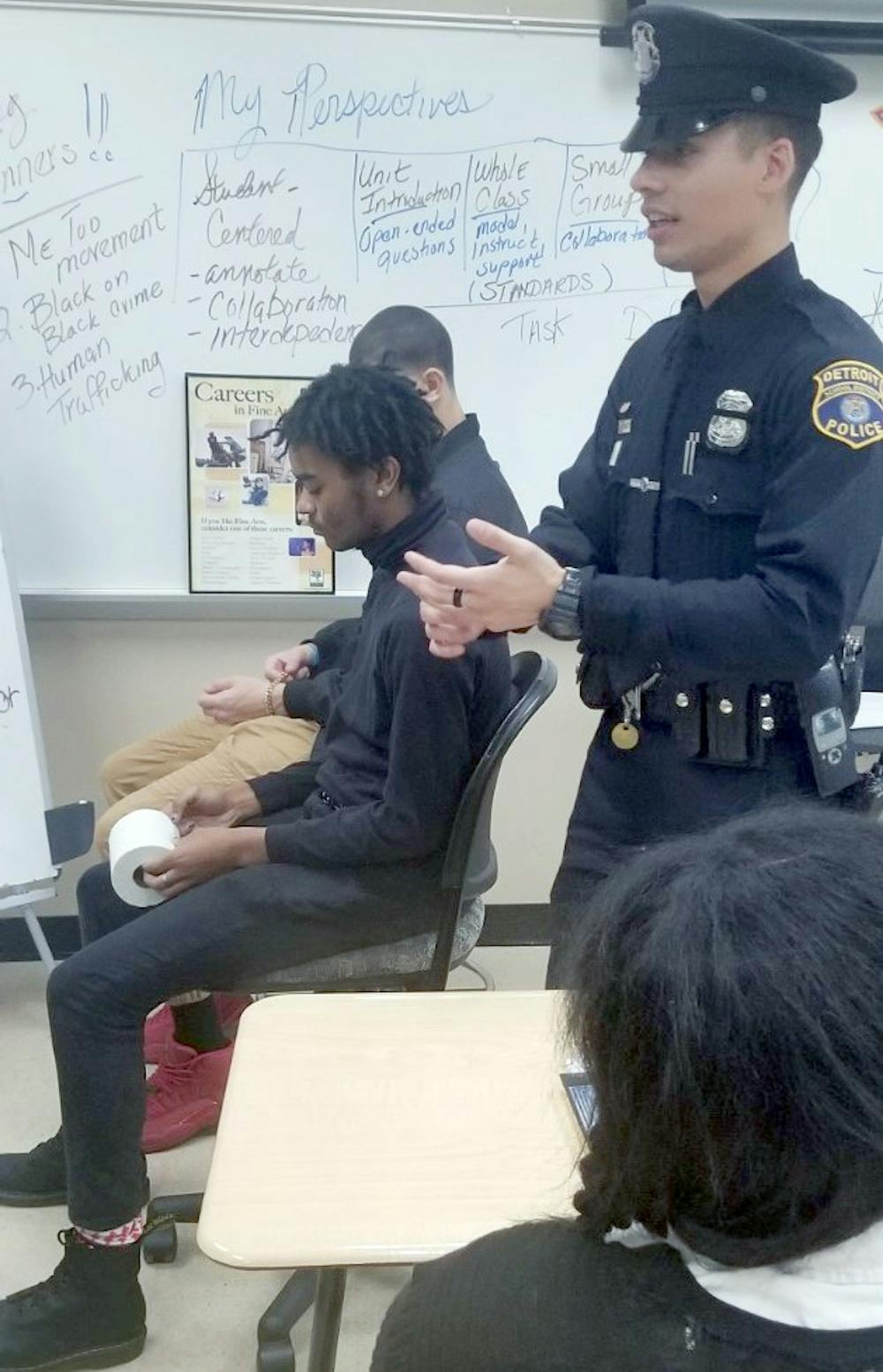
DPSCD police department officer Abraham Perez visits DSA.
Imagine this familiar scenario: You are driving. You may be alone or with some friends in the car. You see red/blue flashing lights behind you. You pull over. You are scared.
Being stopped by the police can be a very serious and scary matter. However, if you know how to act when stopped by the police, you can avoid further risks.
Detroit Public Schools Police Department Officer Abraham Perez visited some classes at DSA to demonstrate the what happens when he pulls someone over.
When he stops a driver, he identifies himself, and tells the driver the reason for the stop. He also asks for the driver’s license, registration and insurance.
Sometimes the driver knows, and tells the truth. Sometimes the driver knows, and lies. Based on the driver’s response, Perez uses his discretion. He wants the driver to be honest. If you are honest, and your record is clean, you may get a warning. If you lie, well you just might get that ticket.
Perez also suggests to roll down all the windows for better visibility. If passengers are fidgeting, or moving suspiciously, he may ask them to get out of the car. If a weapon is discovered, and no one claims ownership, all the passengers will be detained and go to the police station for further investigation. The car will be towed.
ACLU: these are Your rights if detained by police
If you are detained by the police for questioning, the American Civil Liberties Union states you have the following rights:
You have the right to remain silent. For example, you do not have to answer any questions about where you are going, where you are traveling from, what you are doing, or where you live. If you wish to exercise your right to remain silent, say so out loud. (In some states, you may be required to provide your name if asked to identify yourself, and an officer may arrest you for refusing to do so.)
You do not have to consent to a search of yourself or your belongings, but police may pat down your clothing if they suspect a weapon. Note that refusing consent may not stop the officer from carrying out the search against your will, but making a timely objection before or during the search can help preserve your rights in any later legal proceeding.
If you are arrested, you have the right to a government-appointed lawyer if you cannot afford one.
You do not have to answer questions about where you were born, whether you are a U.S. citizen, or how you entered the country. (Separate rules apply at international borders and airports as well as for individuals on certain nonimmigrant visas, including tourists and business travelers. For more specific guidance about how to deal with immigration-related questions, see our immigrants’ rights section.)
Source: https://www.aclu.org/know-your-rights/stopped-by-police/#ive-been-pulled-over-by-the-police


